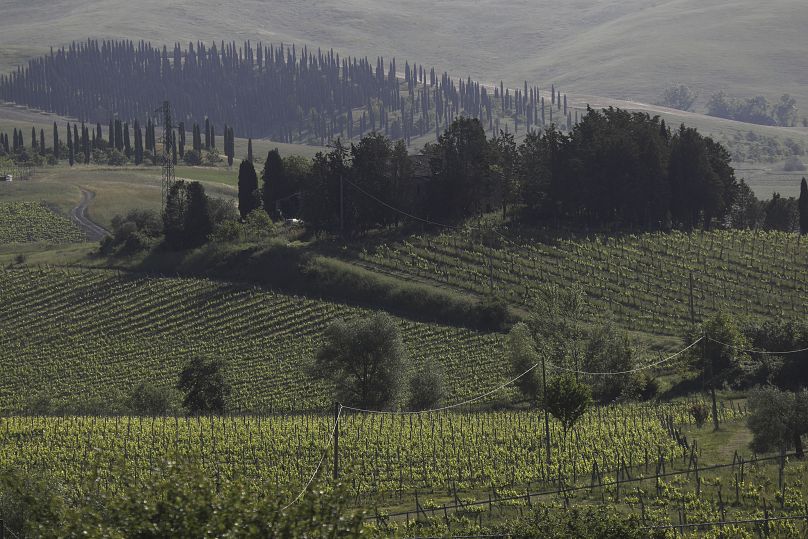Companies fighting to build trust between remote workers are splurging on wild team building activities in far-flung destinations.
Imagine waking up to early morning yoga in the hills of Piedmont. Archery lessons overlooking a sprawling castle. Limousines, five-star hotels and Michelin-starred cuisine. But this isn’t a holiday. This is a company offsite.
 ADVERTISEMENT
ADVERTISEMENT
 ADVERTISEMENT
ADVERTISEMENT
As we emerge from pandemic lockdowns and restrictions, many companies are maintaining a fully remote model. In some cases, in-person interactions have become a thing of the past. Remote work creates better work-life balance for many. But for companies, it can make it challenging to establish a strong company culture.
Some are looking to far-flung destinations, luxury hotels and meticulously designed experiences to build trust between employees and, ultimately, keep them in the company.
We spoke with experts to learn more about the trend, and why it’s important.
What is a company offsite?
Offsites are team-building days that are designed to do everything from bonding employees to brainstorming to troubleshooting what's making workers leave.
While you might think of a company team-building day as employees crammed into a stuffy conference room doin trust exercises, they look very different in 2022. Now, and especially as we emerge from the pandemic, companies are blurring the line between work and vacation to keep a stronghold on company culture.
What is a team building holiday like in 2022?
There have been reports of Uber taking its employees to a Beyoncé concert in Las Vegas, a WeWork summer camp fueled by booze and sex, and Glossier’s lavish ‘glamping’ trips.
The New York Post reported that the owner of a Chicago recruiting company “used the money her company saved on office rent during 2020 and 2021 to shell out $80,000 [€82,500] for her employees to take a three-day weekend trip to Cabo San Lucas, Mexico, in February.”
Once the day's work is done, the alcohol flows.
“It's still one of the oldest tricks in the book if you want to get people to bond,” Johannes Hoyos, owner of the Piedmont-based Workation Village, tells Euronews Travel. “Give them some booze and then it's gonna happen.”
Aron Solomon, the head of strategy at Esquire Digital, also noted that all-nighters in Berlin and Paris, clubs, and lavish dinners are pretty commonplace for big firms.
“Believe me, when they go to these offsites, they stay in the best hotels, they're eating at the best restaurants - at least the big companies, the big law and accounting firms,” Solomon reveals.
“We're talking about a lot of expensive meals. We're talking about limousines for airport transfers, $500 to $700 [€515-€720] night rooms.”
Which destinations are most popular for company offsites?
Solomon says US companies are looking to Europe more than ever, and expects this to continue into next year. He explains that this is a reaction to the pandemic lockdowns.
“People have missed Europe… A lot of these executives or people who get to go offsite, who might have travelled to Europe regularly, have missed it,” he says. “So the idea of a company doing an offsite kills two birds with one stone.”
Where there's a gap in the market, new companies will pop up to fill it. Europe is seeing a host of new businesses that design and host company team-building trips. Again, we’re not talking about a conference room or business lunch.
Solomon predicts companies will be looking for “something kind of exotic” in their 2023 offsites.
In 2021, Hoyos transformed a sparsely populated Italian village into a campus for company trips. The Workation Village hosts multi-day offsites for big names like Google and Spotify, accommodating up to 200 people. Hoyos describes it as countryside boutique hotel meets modern co-working space meets yoga retreat meets adventure space.
According to Hoyos, being in a beautiful natural setting is conducive to creative and productive thinking.
“Our brains are super hardwired to come back again to certain patterns of thought,” he explains. “When we are in our typical environments - cities, airports, meeting rooms, office spaces, restaurants, hotels - [they] tend to trigger these patterns that we are hardwired to.”
Having a break from normal life breaks those patterns, he says.
What’s the point of company away days?
Though individual companies may plan away days with specific goals, there’s one theme that seems everpresent: building trust. This is especially needed amongst remote employees.
Most of the Workation Village’s clients are technology companies. “The goal of those teams is to get to know one another because they normally don't work together in the same space,” Hoyos says. “That's one of the key issues. How do you build trust?”
Hoyos says that being in such close proximity in a new environment can create bonds between employees in a way that may not be possible virtually.
“Say for the first time in your life, you're participating in yoga and you do these awkward movements and you feel a bit embarrassed,” he theorises. “But then you feel like it’s ok, and this creates trust.”
Glamorous company trips also create plenty of fodder for social media.
“We have local photographers and videographers, and we help [employees] to use content around their experiences here to tell the story about their company, their team, company culture, and so on,” Hoyos says.
As businesses continue to adapt to hybrid systems - and employees become more selective about the companies they work for - offsite opportunities could be a powerful tool in the modern workplace.













